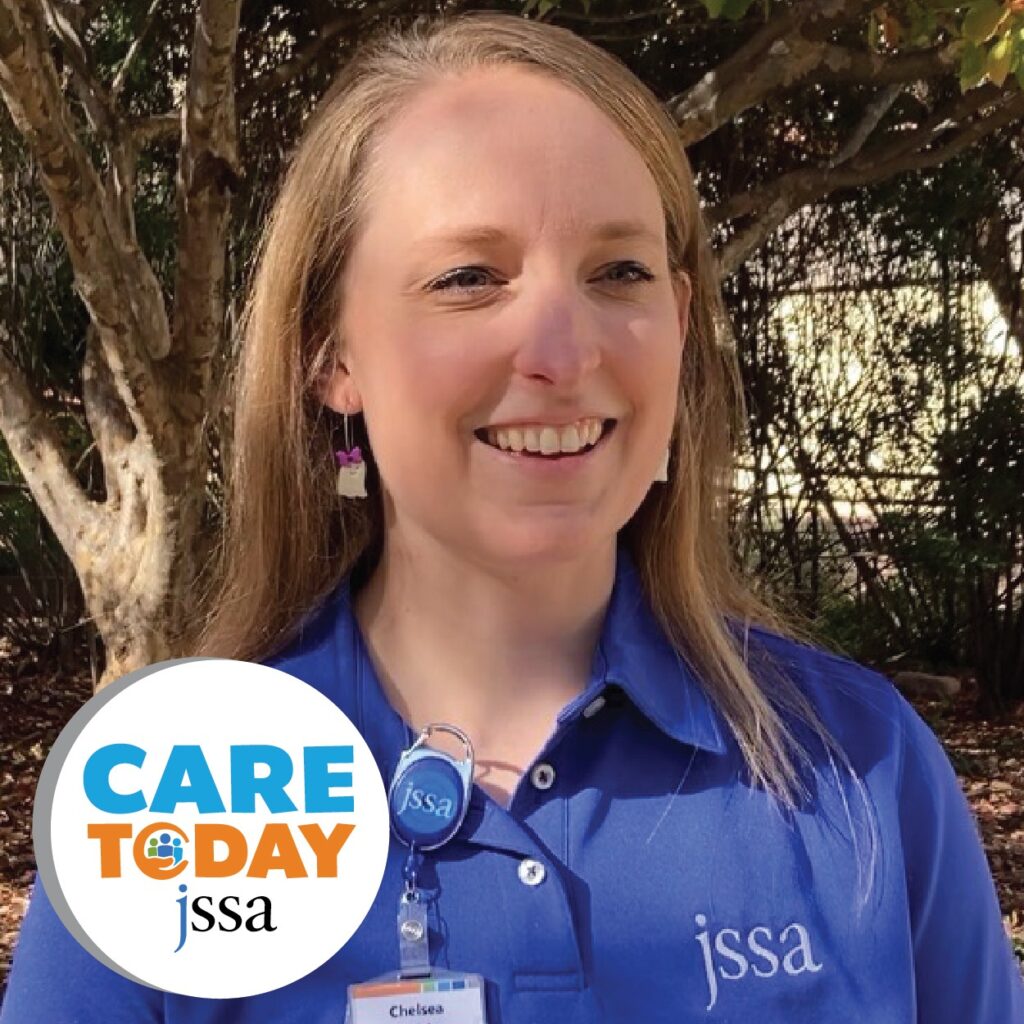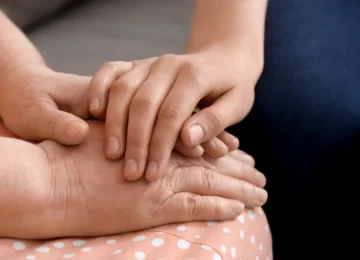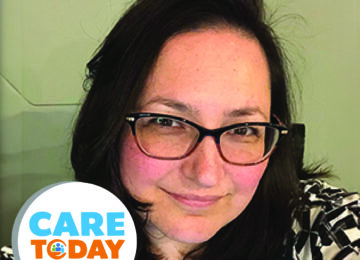Ensuring Dignity with End-of-Life Care

Supporting dignity in end-of-life care can take many forms. For Chelsea Swink, JSSA’s Director of Intake and Admissions in Hospice, the moment that sticks out most in her mind took place at a dance recital.
The young girl’s mother was in hospice care after a tough battle with cancer. Chelsea and her team worked hard to give the woman the opportunity to see her daughter dance comfortably and safely.
Chelsea will never forget the woman’s end-of-life journey, her daughter, or that recital.
As a hospice nurse, and now director of admissions, Chelsea interacts daily with new patients or loved ones calling to learn more about JSSA’s Hospice care.
Why Call Hospice?
Hospice care is a covered benefit by Medicare and most insurance plans. However, many patients resist calling hospice for several reasons.
Some may not completely understand the full breadth of services provided by a hospice team. Others may lack a referral or conversation with a physician about the option for end-of-life care. And many may feel like making the phone call means they are admitting defeat to an illness.
Compassionate end-of-life care is more about living than dying, according to Chelsea. Seeking hospice care is an important step towards living in comfort and with dignity, despite a life-limiting condition.
“Here at JSSA I really feel that the team members you’ll interact with when you come on our services really truly care about the whole person – mind, body, and soul,” Chelsea said. “The mission is such that all people, regardless of their background and religion, can be cared for.”
Hospice Intake Process
JSSA’s hospice team approaches every patient with active listening to validate the patient and their loved ones’ feelings (and/or fears) about inquiring about hospice care.
“Often people are nervous. It’s a difficult decision to pick up the phone and ask about hospice services … It takes a lot of courage,” Chelsea said. “We remember that we are the experts in hospice, and we do it every day. We try to put their fears at bay.”
JSSA’s team works with a patient’s other providers to determine eligibility for hospice services. Once eligibility is confirmed, our team works with providers to provide comprehensive, compassionate end-of-life care. This will include a team of nurses, social workers, chaplains, and volunteers.
If a patient is not medically eligible, or emotionally ready for hospice, they may choose to enter JSSA’s Transitions program. Transitions offers free nurse and volunteer visits to patients living with life-limiting illness in our community.
JSSA’s hospice team specializes in providing physical, emotional, and practical end-of-life needs with compassion and cultural sensitivity. Our steady presence helps our neighbors and their loved ones experience quality of life even during this most difficult moment.



